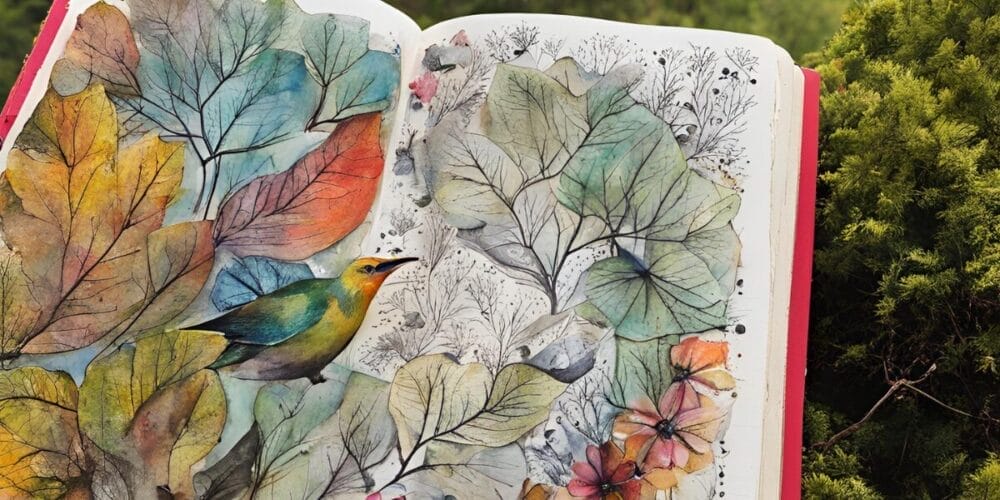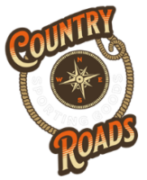The Art of Nature Journaling: Capturing Your West Virginia Adventures

West Virginia’s diverse landscapes offer a wealth of natural wonders, from the rugged Appalachian Mountains to serene river valleys. As outdoor enthusiasts, we often seek ways to deepen our connection with nature and preserve our experiences. Enter nature journaling – a practice that combines observation, reflection, and creativity to enhance our outdoor adventures.
What is Nature Journaling?
Nature journaling is the practice of drawing or writing in response to nature. It’s a way of recording observations, thoughts, and experiences in the outdoors. Unlike a mere trip log, a nature journal captures not just what you see, but also what you feel, hear, and even smell in natural settings.
Benefits of Nature Journaling
Enhanced Observation Skills
Nature journaling encourages us to slow down and pay attention to details we might otherwise overlook. By regularly practicing this art, many naturalists have reported significant improvements in their ability to notice and remember minute details about plants, animals, and landscapes.
Improved Memory and Appreciation
Studies have shown that the act of writing or drawing helps cement memories. By journaling about your outdoor experiences, you’re more likely to remember them vividly years later. This practice can deepen your appreciation for the natural world around you.
Stress Relief and Mindfulness
Spending time in nature has been scientifically proven to reduce stress levels. Combining this with the mindful practice of journaling can amplify these benefits. A 2018 study published in the Journal of Environmental Psychology found that participants who engaged in nature-based mindfulness activities reported lower stress levels and improved overall well-being.
Tracking Personal Growth
Over time, your nature journal becomes a record of your outdoor skills development. You might notice improvements in your ability to identify bird calls, track animals, or navigate trails. This tangible evidence of growth can be incredibly motivating.
Getting Started with Nature Journaling
Choose Your Method
You don’t need fancy equipment to start nature journaling. A simple notebook and pencil will do. Some prefer hardbound sketchbooks for durability, while others opt for loose-leaf papers they can organize later. Choose what feels comfortable and practical for your outdoor activities.
What to Include
There’s no strict rule about what should go in your nature journal. However, here are some elements commonly included:
- Date, time, and location
- Weather conditions
- Sketches or descriptions of plants and animals
- Landscape features
- Personal reflections and questions
- Sensory observations (sounds, smells, textures)
Tips for Consistent Journaling
Consistency is key in developing your nature journaling practice. Try to make it a regular part of your outdoor routine. Even five minutes of journaling during a break on a hike can yield valuable observations and memories.
Nature Journaling Techniques for Different Activities
Hiking and Backpacking
When hiking, you might focus on recording trail conditions, landmarks, or changes in vegetation as you gain elevation. Backpackers often include notes on campsites, water sources, and wildlife encounters.
Fishing and Hunting
Anglers and hunters can benefit greatly from nature journaling. Record species behavior, preferred habitats, and successful techniques. Over time, these notes can significantly improve your success rates.
Birdwatching and Wildlife Observation
Sketching can be particularly useful for birdwatchers and wildlife enthusiasts. Even simple drawings accompanied by written notes can help you remember and identify species later. Include details on behavior, vocalizations, and habitat preferences.
Creative Elements to Incorporate
Sketching and Drawing
Don’t worry if you’re not an artist – the goal is to record observations, not create masterpieces. Simple line drawings can be incredibly effective. With practice, many people find their sketching skills improve dramatically.
Photography
While not traditional journaling, photographs can complement your written notes beautifully. They can capture details your words might miss and serve as references for later sketching or writing.
Collecting Natural Objects
Where permitted, pressing leaves or flowers or creating bark rubbings can add a tactile element to your journal. Always check local regulations and practice Leave No Trace principles.
Showcasing West Virginia’s Natural Beauty Through Journaling
West Virginia offers countless opportunities for nature journaling. Here are a few iconic locations to consider:
- Blackwater Falls State Park: Record the changing colors of the falls throughout the seasons.
- New River Gorge National Park: Sketch the dramatic landscapes and diverse ecosystems.
- Monongahela National Forest: Document the incredible biodiversity of this vast forest system.
Nature journaling is more than just a hobby – it’s a way to deepen your connection with West Virginia’s natural wonders. By regularly observing and recording your experiences, you’ll develop a greater appreciation for the subtle changes in landscapes, the behaviors of wildlife, and your own growth as an outdoor enthusiast.
Whether you’re hiking the Appalachian Trail, fishing in a secluded stream, or simply sitting in your backyard, nature journaling can enrich your outdoor experiences. It encourages mindfulness, improves observational skills, and creates a lasting record of your adventures in Wild, Wonderful West Virginia.
So on your next outdoor adventure, why not take a few moments to jot down your observations? You might be surprised at how much it enhances your experience and deepens your connection with nature.
We’d love to hear about your nature journaling experiences! Share your favorite West Virginia locations for nature observation on social media with the hashtag #WVNatureJournal. And remember, whether you’re journaling or engaging in any outdoor activity, Country Roads Sporting Goods is here to outfit your adventures with quality gear that can enhance your nature experiences.
Happy journaling, and see you on the trails!


